
°Lifelong learning, in a narrow sense, refers to active or passive learning throughout one’s entire life.
°Broadly speaking, it also means voluntary and self-motivated pursuit of knowledge that either satisfies our own curiosity or makes us put a lot of time and effort into things we are passionate about.
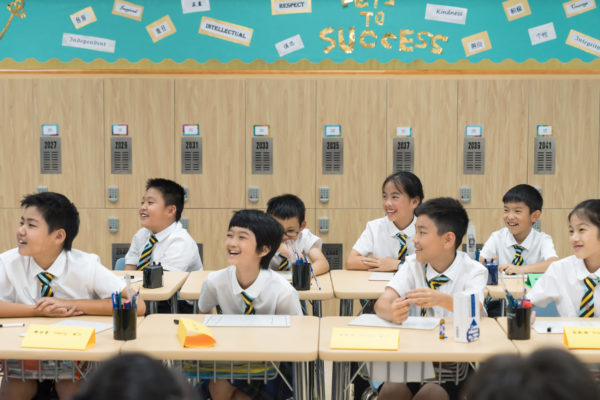
Lifelong learning with a broader meaning will create greater and more varied opportunities, driving us to achieve our full potential.
Undoubtedly, developing our enthusiasm for learning, particularly lifelong learning, is challenging. Every time we acquire a new skill or new knowledge, the sense of achievement will confine us to our comfort zone.
However, since we live in the ‘Internet plus’ era, our surrounding environment will constantly remind us to try to surpass ourselves in different ways.
Whether we’re considering job descriptions displayed on recruitment websites, ongoing development of science and technology, or the ever-changing global business environment, all these reminders urge us to adjust our thinking patterns and turn learning into a lifelong habit.
We endeavour to cultivate Hiba pupils’ lifelong passion for learning in an all-round manner in our mathematics lessons by establishing class routines, designing creative courses and giving pupils timely formative evaluations.
Establishing class routines: developing positive learning habits and encouraging pupils to become deep thinkers
A mathematics educator once said: “Mathematics is not just solving X but figuring out Y.”
Thus, in the process of establishing class routines, our mathematic teachers not only create engaging and open-end learning environment to ignite pupils’ zest for independent study, they also motivate pupils to put forward their own questions.
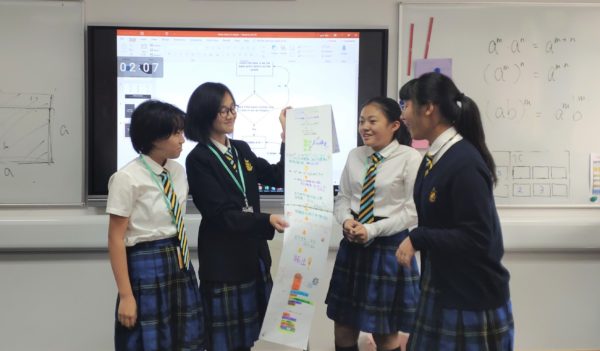
In our daily teaching practices, teachers guide pupils to think deeply and give recognition to those who can pose a question by themselves. Moreover, for pupils who can quickly solve a mathematical problem, teachers inspire them to find multiple solutions by breaking through their conventional thinking mode.
Designing creative courses: focusing on perception and building pupils’ cognition process
In a traditional educational setup, pupils are able to remember a lot of knowledge after a class, but this knowledge is usually crammed into them by their teachers and not gained through independent exploration. Modern educational philosophy lays greater emphasis on developing pupils’ perceptive abilities and advocates that pupils should obtain a complete cognition process of curiosity, exploration, thinking and conclusion.
Recently, when Grade 7 pupils began to learn the rules of exponents, they did not simply read definitions or memorise formulas. Instead, they generalise a conjecture by analysing examples and then explain it in their own words. Driven by their curiosity, pupils take the initiative to explore the unknown, think independently and eventually summarise algorithm rules. By doing this, they can thoroughly experience a thinking process where induction and deduction are necessarily included.
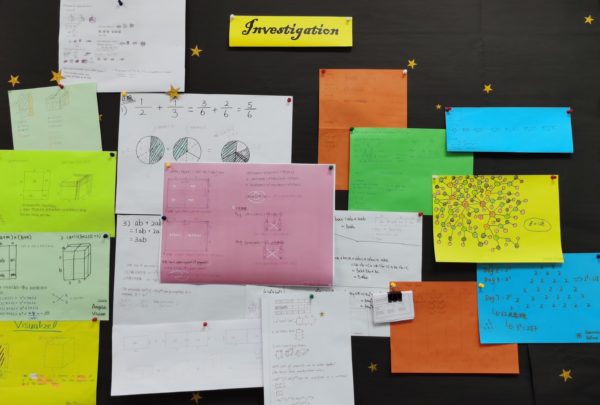
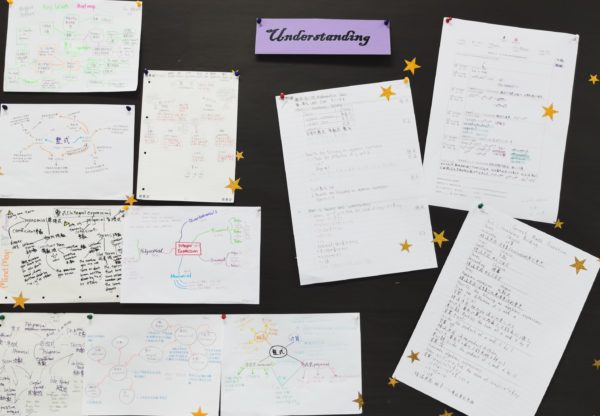
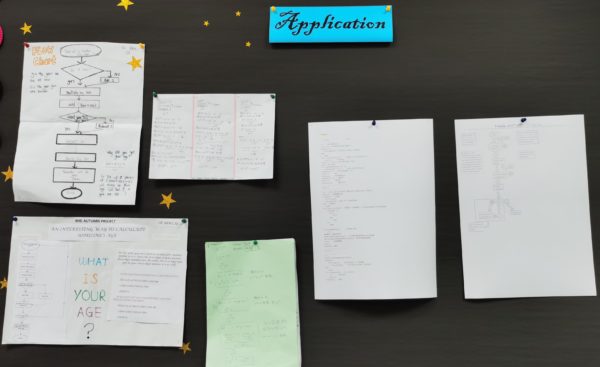
Formative evaluation: giving timely feedback on knowledge and skills acquisition
We pay more attention to formative evaluation instead of summative evaluation because the former allows us to give timely feedback. At present, Grade 7 pupils understand clearly whether or not they meet the skills and knowledge targets after a unit test. We set ‘YET/NOT YET’as our evaluation result rather than grades in order to maintain pupils’ learning enthusiasm. Formative evaluation help pupils to check how well they command different skills and knowledge and to reinforce training in their disadvantageous areas.

When we designed our mathematics curriculum, our teaching objectives are not restricted to merely training pupils’ problem-solving abilities, we focus more on developing good learning habits, while maintaining their passion for learning and applying knowledge. We hope that our carefully and reasonably designed curriculum will guide pupils to connect subject knowledge with their personal interests, as they proactively explore and share their studying process and achievements with others. Eventually, they will become inquisitive and passionate lifelong learners.